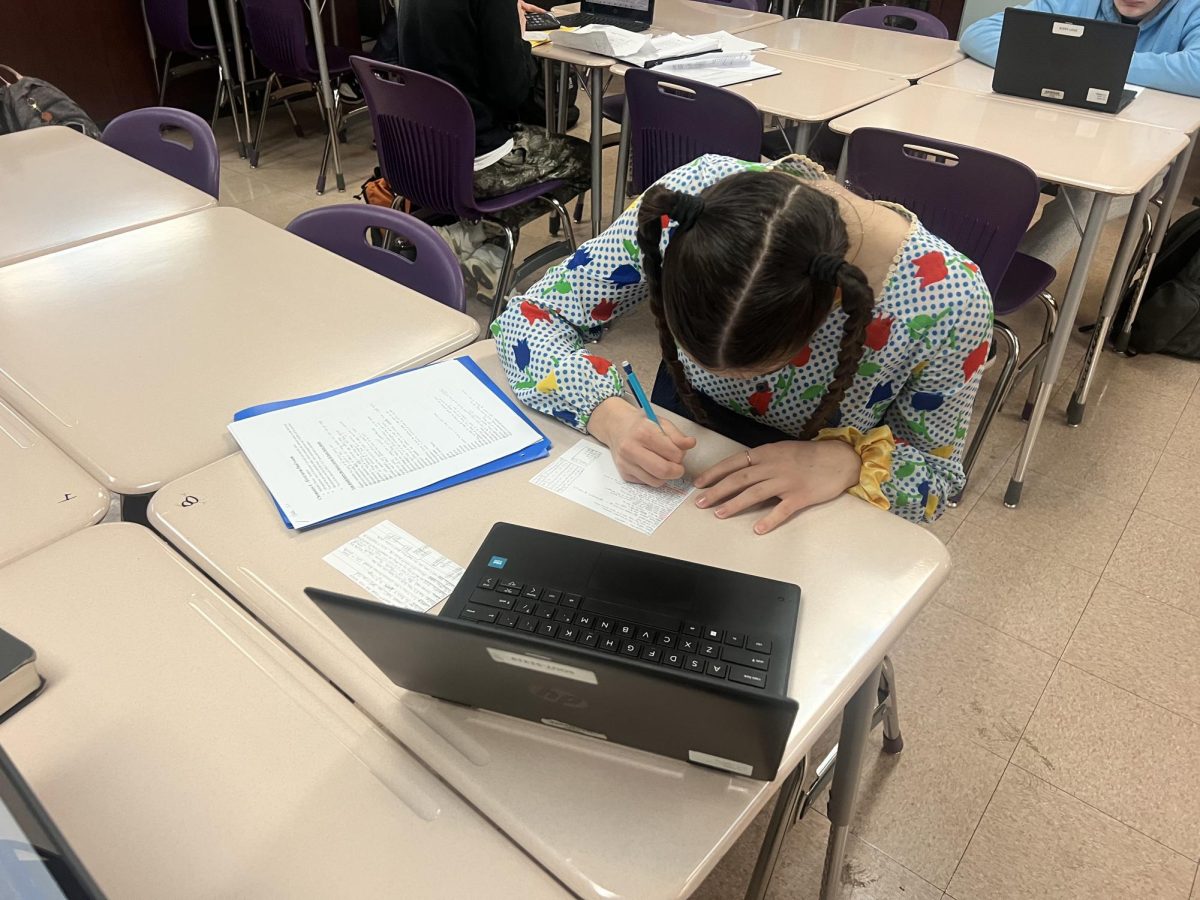Picture this: you have an upcoming test you need to study for. To help memorize the terms, you decide to go to the site that has helped you pass numerous classes in the past: Quizlet. (Cue angels singing.) Though it takes time to input all your vocab words and their definitions, you know the end result is worth it. Finally, you’re ready to start. You go to the helpfully titled “Learn” tab when, five rounds later, a notice pops up advertising something called Quizlet Plus.
Implemented Aug. 1, 2022 (conveniently right in time for the school year to start up again) both Learn and Test modes became part of Quizlet Plus, meaning they are now blocked behind a paywall. After a 7-day free trial, for a simple $35.99/year ($2.99/month if you find that number more palatable), you can access what was previously free for 15 years. You can also pay monthly at $7.99/month, for some reason.
Allow me to be blunt here when I say this change is based in greed and is completely hypocritical. Quizlet is profiting off of desperate students who are constantly being told that getting good grades and attending an Ivy League college are the most important things in the world. And before anyone makes the argument that the website needs money to keep up maintenance, ads on the site were enough to keep it running since going public in January 2007. Also, according to TechCrunch in 2020, Quizlet was valued at $1 billion. So yeah, I think they’re doing okay.
But don’t blame founder Andrew Sutherland for these changes; as of 2019, he is no longer involved with the company. Instead, direct your frustration at current CEO Matthew Glotzbach. In an interview with M-A Chronicle, Glotzbach claimed, “In everything that we do, we really focus on students and building that technology and tools that really help students learn.” Quizlet was that technology. How does monetizing learning and alienating economically-challenged students help them learn?
There is, theoretically, a workaround to the cost: if teachers sign up for Quizlet Teacher, that teacher is able to give their students access to all features for free. Somebody could make a valid argument about why this might work in high school, but what about in college where classes are much less structured? Add that to the average cost of college in the US ($35,551 per student per year), and it’s easy to see this is simply not sustainable for many students.
As someone who used Quizlet to help me pass biology honors, French 3, and US history (among others), this change is a disappointing but not surprising reminder that students are an afterthought for corporations. At the end of the day, who cares about making education accessible when there’s potential profit to be made?




